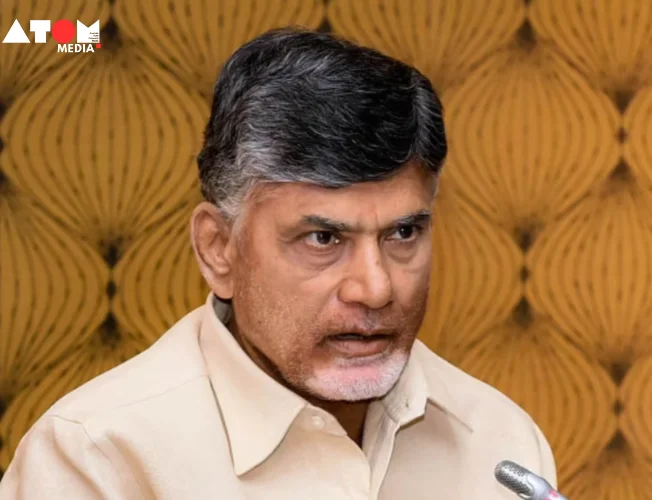The political savvy and calculated campaigning of Chandrababu Naidu brought the Telugu Desam Party (TDP) and its allies a decisive win. This electoral result was largely attributed to the shift in the vote bank and the anti-incumbency mood against the YSRCP. Voters responded well to Naidu’s “Super Six” pledges, which demonstrated his outlook for Andhra Pradesh’s future.
The ‘Super Six’ Promises
Naidu’s ‘Super Six’ promises include:
- Enhanced social pensions.
- Free public transport for women.
- Educational support.
- LPG subsidies.
- Farmer support.
- Completion of key projects.
Social Pensions
Naidu pledged to meet the demands of almost 65 lakh beneficiaries by raising the monthly social pension from Rs 3,000 to Rs 4,000. By July 1st, only this pledge will cost more than Rs 4,500 crore.
Free Public Transport for Women
The Free Public Transport for Women campaign promised free transportation for women in government-operated buses; however, the Andhra Pradesh State Road Transport Corporation (APSRTC) had to pay hefty reimbursements for this.
Educational Support
Each school-age child getting educational support receives Rs 15,000 annually; this might put a considerable financial strain on the state, particularly if the cap on beneficiaries is lifted.
LPG Subsidies
In an effort to lower family expenses, the LPG subsidies provide each household with three free cooking gas cylinders annually.
Completion of Key Projects
Accelerating the irrigation project in Polavaram and building a new capital in Amaravati are the main project completion goals.
Financial Implications and Challenges
Naidu’s audacious claims will have a big financial impact. In order to manage the state’s current financial responsibilities and fulfil these commitments, the incoming administration will need to raise a sizable sum of money.
Public Debt and Committed Expenditure
With public debt of Rs 4.83 lakh crore, government guarantees of Rs 1.39 lakh crore, and extra loans from the Centre, Andhra Pradesh’s fiscal health is already in jeopardy. The state government commits to spending around Rs 1.30 lakh crore a year on interest, loan repayments, pensions, and salaries.
Immediate Financial Needs
The Reserve Bank of India states that selling securities valued at Rs 2,000 crore through an auction can help with urgent cash demands. The payment of social pension obligations alone takes Rs 2,600 crore per month. The anticipated rise in pensions will result in a significant increase in the financial load. In addition, an immediate investment of Rs 4,500 crore in July will be required to complete the backlogs and the new pension rates. Additionally, Rs 6,000 crore will be needed for government employee pay and pensions.
Free Travel Scheme
The state’s finances will be further burdened by the promise of free transport for women on government buses. With women making up roughly 35–40% of customers, the APSRTC sells tickets for between Rs 450 and Rs 500 crore each month. The APSRTC reimbursement for this initiative may come at a cost to the government of around Rs 2,000 crore a year.
Educational and Welfare Promises
The abolition of the beneficiary cap and the promise of Rs 15,000 per school-age child could result in a considerable rise in state spending. A similar programme called “Amma Vodi” had received Rs 6,500 crore from the previous YSRCP government.” Increased coverage could result in a significant increase in the financial demand. The state’s financial difficulties may worsen if three free LPG cylinders per home and a yearly financial aid of Rs 20,000 are given to farmers. Even though these policies are good for the public, they necessitate careful resource allocation and budgetary planning.
Strategic Financial Management
To manage the fiscal challenges, Naidu’s team has devised strategic plans to increase the state’s revenue and optimize financial resources. Key strategies include increasing the tax-GDP ratio, promoting revenue-generating projects, securing central assistance, and implementing targeted welfare schemes.
Revenue Generation and Central Assistance
Efforts are underway to raise the tax-GDP ratio by 1% to 1.5%, enhancing the state’s revenue base. Promoting revenue-generating projects, particularly in the coastal regions, aims to boost the state’s economic growth. Securing an economic package from the central government will support key projects and welfare schemes.
Targeted Welfare Schemes
Implementing targeted welfare schemes based on a detailed household-level survey aims to address specific economic concerns and ensure effective resource allocation.
Looking Ahead
Chandrababu Naidu’s historic political victory in Andhra Pradesh is a testament to his strategic vision and promises of comprehensive development. However, the fiscal challenges ahead are significant, requiring astute financial management and strategic planning. By leveraging innovative revenue-generating measures and securing central assistance, Naidu aims to fulfill his “Super Six” promises and lead Andhra Pradesh towards a prosperous future. As he prepares to take office, the eyes of the nation will be on his ability to balance regional aspirations with national interests and deliver on his ambitious commitments.
Read more: Marketing News, Advertising News, PR and Finance News, Digital News





